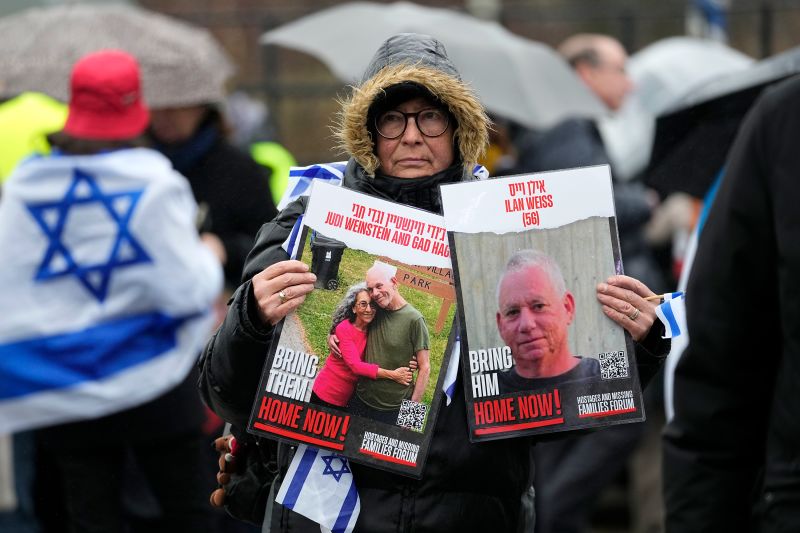Israel’s long battle with the terrorist organization, Hamas, has seen many civilians caught in its crosshairs. Amongst these are innocent individuals who have been taken hostage by Hamas and have since then, become a symbol of the profound hardship and sacrifices their families undergo in their absence. These families are now seeking justice for their kin through an unprecedented measure – a war crimes complaint against Hamas.
Scouring through the annals of Israeli history, this is the first time such an initiative has been taken by the families of Israeli hostages, undermining the relentless cruelty of Hamas, elucidating their recurring disrespect for international law, and demanding an appropriately stern global response.
The Israeli hostages in contention comprise of both civilians and soldiers. Soldiers Hadar Goldin and Oron Shaul, who were declared dead by Israel, were captured by Hamas during the 2014 war. The list also includes Avera Mengistu and Hisham al-Sayed, civilians who are believed to be alive and suffering in Hamas’s captivity. All these individuals were unlawfully captured, signifying a gross violation of international humanitarian law.
These families, carrying the burden of their loved one’s absence and the uncertainty of their fate, have come together to lodge a complaint with the International Criminal Court (ICC). They filed the complaint under Article 8 of the Rome Statute, which categorizes ‘hostage-taking’ as a war crime. They claim that Hamas’ actions have inflicted ‘intolerable cruelty’ on their lives, creating an environment replete with constant anxiety, fear, and pain. By treating their loved ones as bargaining chips in political negotiations, Hamas has showcased its derision for human rights and dignity.
While the ICC has traditionally been reticent in prosecuting non-state actors like Hamas, the severity, and the broad-ranging impact of this case might urge a deviation from that policy. The families hope that their plea will shed light on the torturous reality of the hostages and drive the international community to take action.
Despite the political hurdles and the inherent uncertainty associated with such legal pursuits, the Israeli hostage families continue their quest for justice, displaying resilience, and unwavering courage. Their actions aim to provide a beacon of hope to those suffering in silence, nudging the global community towards acknowledging and abating the injustices perpetrated in the name of conflict.
In their fight, these families are not just seeking recompense for their personal loss, but are attempting to modify the narrative surrounding non-state actors like Hamas and their transgressions. Their audacious venture of taking legal action aims to complement Israel’s battles on the frontlines, bringing the war closer to a conclusion – a conclusion where justice prevails, and the sanctity of life is upheld.
In conclusion, the war crimes complaint lodged by Israeli hostage families against Hamas is a testament to their grit and determination in seeking justice. Presenting an unprecedented example, they urge the world to look beyond political alliances and consider the humanitarian standpoint. This move stands as a beacon of hope for them, the hostages, and other victims of similar circumstances, all expecting a more just and peaceful world.




